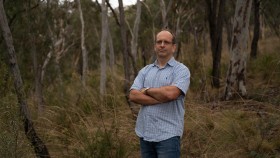Hydrogen can transition Australia into a zero-carbon energy export superpower
Dr. Fiona J. Beck, Convenor of the Energy Change Institute’s newest research cluster - discusses why hydrogen is the hottest topic in the energy scene.
Recent developments such as the Chief Scientists’ National Hydrogen Strategy adopted by COAG, and the Labor Party’s $1 billion pitch for a national hydrogen plan, might just be the incentives needed to help Australia become a world-leader in green hydrogen exports, and to utilise hydrogen in zero-carbon export value-adding for industries such as mineral ore refining.
Dr Beck believes Australia has everything else that is needed in the one place – cheap and abundant solar and wind resources, enormous mineral reserves, a skilled population, and the right technological expertise. “There is no other country in the world that is in this unique position,” said Dr Beck.
Hydrogen can be generated using renewable energy to power, for example, electrolysis of water. In a carbon-constrained world, hydrogen has a real chance of replacing fossil fuels as an energy export. It can also be used to reduce mineral ore oxides to create refined metals, or be transformed into hydrogen-rich products such as ammonia or fertilisers. And with its broad research portfolio, the ANU Energy Change Institute’s Hydrogen Economy research cluster can provide the interdisciplinary knowledge to achieve this.
“The cluster is comprised of people who are creating new ways of generating, storing, transporting and using hydrogen; we also have a large number of researchers with expertise in policy, governance, economics and international relations – all necessary for Australia to become a key player in exporting hydrogen and hydrogen-based products into a world-wide hydrogen economy,” said Dr Beck.
“There is a sense that the rest of the world is encouraging Australia to make this work. Australia has a real opportunity to become a renewable hydrogen superpower: we need to make sure we take full advantage of it,” she adds.
Japan, China and South Korea have been identified as potential markets for Australian hydrogen. Dr Beck notes that world-leading ANU expertise in the Asia – Pacific can also aid the cluster in accelerating Australia’s contribution to the world’s hydrogen economy.
Find out more about the Energy Change Institute's Hydrogen Economy Research Cluster here.










